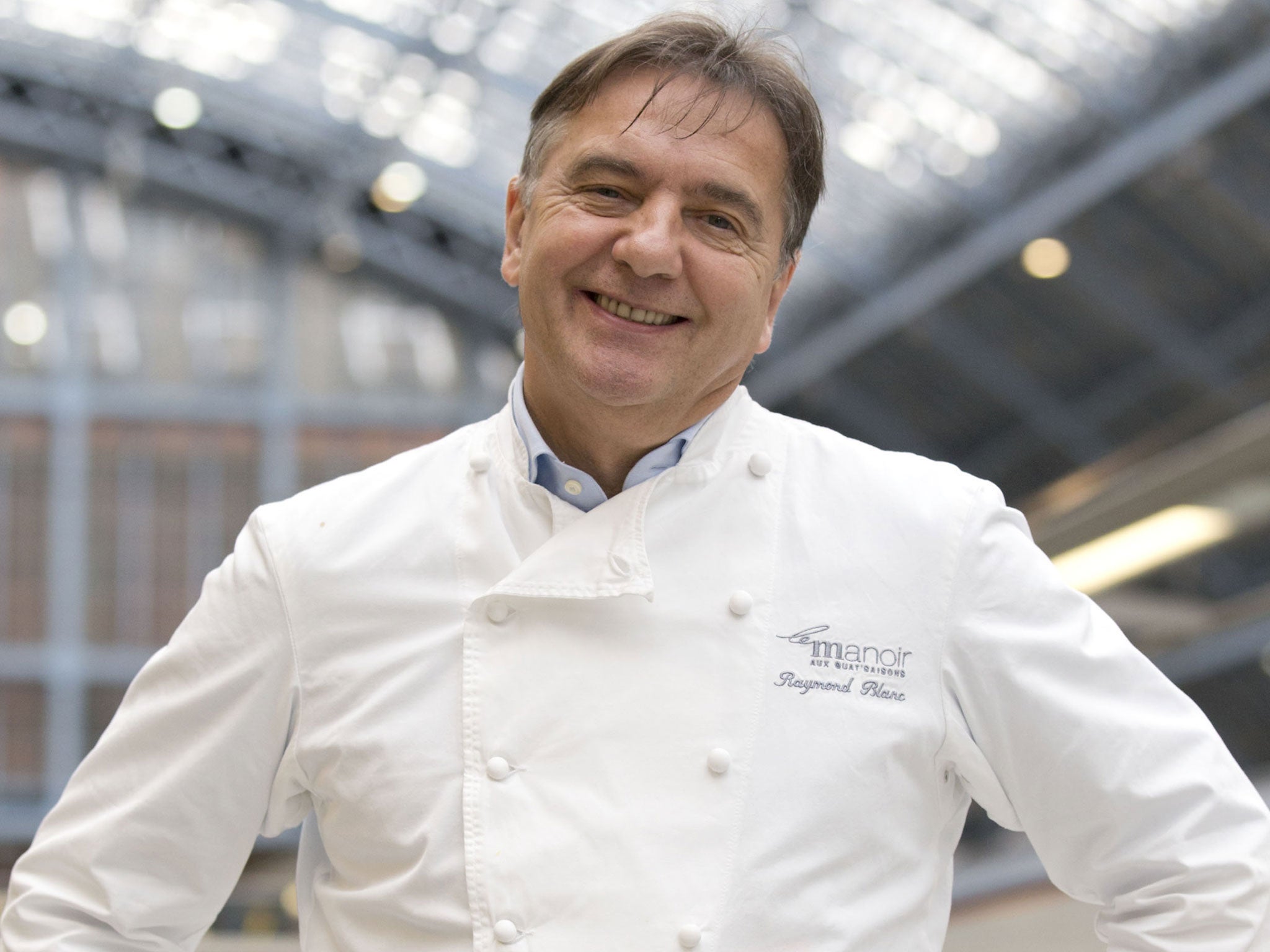Grow your own! Chef Raymond Blanc says Britain needs to reconnect with the land

Your support helps us to tell the story
From reproductive rights to climate change to Big Tech, The Independent is on the ground when the story is developing. Whether it's investigating the financials of Elon Musk's pro-Trump PAC or producing our latest documentary, 'The A Word', which shines a light on the American women fighting for reproductive rights, we know how important it is to parse out the facts from the messaging.
At such a critical moment in US history, we need reporters on the ground. Your donation allows us to keep sending journalists to speak to both sides of the story.
The Independent is trusted by Americans across the entire political spectrum. And unlike many other quality news outlets, we choose not to lock Americans out of our reporting and analysis with paywalls. We believe quality journalism should be available to everyone, paid for by those who can afford it.
Your support makes all the difference.Raymond Blanc, one of the UK's best-loved chefs, says Britain has lost both its connection with the land and any feeling for how food is grown. And the Frenchman is urging us to return to traditional methods of producing food.
Blanc, a self-taught, Michelin-starred chef is launching the Royal Horticultural Society's "Edible Britain" campaign tomorrow, in which the RHS calls on the nation to provide communities with fresh, seasonal produce.
"People have lost completely their connection with the earth, their sense of place, how food is grown, the variety and seasonality," said Blanc, 63, yesterday. "It's about reconnecting with your land – you help the farmer keep his job and keep our little villages alive. So, as consumers, we can really help to revive, and connect with, the craft of growing food. I think British people have made the mistake of becoming a big factory for many, many years," he said.
Blanc, whose Le Manoir aux Quat' Saisons, in Oxfordshire, has retained two Michelin stars for almost three decades, said that despite the organic movement in recent years, more was needed to reconnect people with the land and help them understand where our food comes from – especially in light of last month's horsemeat scandal.
Despite such incidents, he believes attitudes have been changing over recent years.
"British people now want knowledge, and the consumer is much more ethical. We had no clue where our food came from – of course, which is why we ended up with horse in our burgers for the past 40 years, and no traceability, and full of chemicals.
"We are looking at food in a different way, which is very exciting. We want to know how and where it comes from, how and where it's grown. Soon we are going to reconnect with our local agriculture."
As he launches the campaign – part of the RHS's Britain in Bloom movement – Blanc will teach children from an inner-city London estate the benefits of growing their own vegetables by helping them plant raised beds. There are some 3,300 "bloom groups" in the UK – volunteers who look after nearly 80 square miles of British outdoor space, many of which grow food.
Blanc said it was the decades after the Second World War and the adoption of food-growing techniques from the US which created the most damage to the way we viewed our food production habits.
"The government after the Second World War took a decision to say the nation would never lack food. We will be self-sufficient. We looked across to America and saw the wonderful 'miracle' which America was producing, that with one acre of land, you could produce about four times more. We embraced that system and all the chemicals and the whole tool box of chemistry – and now we understand there's a cost to it. We lost a great deal."
As a boy, Blanc said he worked in his family kitchen garden, under the tutelage of his father. "My father had a big garden. I was a humble worker from the age of six. But I used to hate it because while my friends were playing football, I was in the garden."
First training as a waiter, he worked at a renowned restaurant in his home city of Besançon in France – but was later fired for daring to offer the head chef culinary advice. After moving to England in the early 1970s, Blanc first opened a restaurant in north Oxford by mortgaging his house and calling on help from friends. In 1983, he purchased a manor house in the Oxfordshire village of Great Milton and opened it as a country house hotel, known as Le Manior aux Quat' Saisons. He has also, in recent years, opened a chain of brasseries.
Raymond Blanc cookbooks – plus free seeds
The Independent on Sunday is giving away a pair of signed Raymond Blanc cookery books to five lucky readers. In order to win Raymond Blanc: A Taste of my Life and Kitchen Secrets, simply email: sundayletters@independent.co.uk by noon, Friday 19 April, 2013. Include your name, postal address, and a daytime telephone number. Please put "Edible Britain Competition" in the subject header of your email.
Alternatively, you can post your details to: "Edible Britain Competition", Independent on Sunday, 2 Derry Street, London, W8 5HF. The first five names drawn out of the hat will receive two signed copies and the next 10 names will receive a bumper pack of seeds – courtesy of the Royal Horticultural Society – each containing 15 packets, enough to grow an entire vegetable garden. Good luck!
For more information on Raymond Blanc visit: www.manoir.com
Usual promotion rules apply, see www.independent.co.uk/rules. For further information, please write to Customer Care, Room 203b, Independent Print Limited, Northcliffe House, 2 Derry Street, London, W8 5TT [or call the SMS helpline on 0800 014 1178].
Join our commenting forum
Join thought-provoking conversations, follow other Independent readers and see their replies
Comments